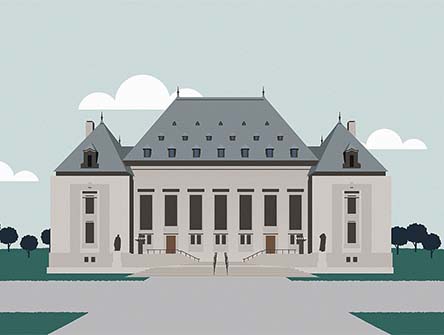Liberal democracies are wrestling with a crisis of confidence in freedom of speech.
It’s a sentiment that has been tracking alongside other worries – about erosions to the rule of law, reports of declines in civil liberties in many parts of the world, and distress over the torrent of invective that social media has unleashed. Civility is out the window. Women and Muslims are disproportionately the targets of trolls and haters. The loudest individuals will hijack debate and intimidate others into silence.
Caught in middle of all this are the new arbiters of acceptable conduct online – principally Facebook, Twitter, and Google.
It’s a role they would prefer not to have, after years of holding the internet up as the modern public square where views can be freely exchanged.
Facebook has always sold itself as a neutral platform for information. But the social media giant has been caught wrong-footed in a number of recent instances. In the lead-up to the 2016 U.S. election, it was accused of tweaking its algorithm to bury conservative viewpoints, then later of enabling the spread of right-wing misinformation. It recently announced plans to overhaul its newsfeed by letting users rank the credibility of news sources. Meanwhile it is accused of promoting Western-centric bias on its trending topics.
Under public pressure, Twitter – once known as "the free speech wing of the free speech party" – has been amending its terms of service to rein in hateful and abusive content on its feed.
None of this should come as a surprise. Like traditional media outlets, social media companies are incentivized to self-censor. They are heavily reliant on advertising revenue, the kind that prefers to appeal to prevailing opinion. Just last month Unilever threatened to pull its ads from Google and Facebook unless they agreed to do more to remove toxic content, a term subject to interpretation.
That may be troubling to free-speech activists. But it’s perfectly within the social media platforms’ rights, as algorithmic editors, to decide how content is organized and featured on their users’ feeds, just as traditional media can decide what to print or broadcast.
Plus ça change. Long before digital media took over our public space, John Stuart Mill warned against the dangers of “prevailing opinion” and society’s tendency “to impose, by other means than civil penalties, its own ideas and practices as rules of conduct on those who dissent from them.” He called this “a social tyranny more formidable than many kinds of political oppression.”
Even so, one wonders how the English philosopher would react today to the virtual outsourcing of censorship by certain governments to the world’s largest social media companies.
Germany recently enacted a law that can force companies like Twitter and Google to remove “unlawful content” – another vaguely understood term – within 24 hours of receiving a complaint on their website. The penalties for non-compliance can reach into the millions of euros.
Over the Christmas break, news reports floated that Facebook had deactivated accounts belonging to Chechnya’s strongman leader Ramzan Kadyrov, a close ally of Russian President Vladimir Putin, though not for violating its terms of service. The social network issued a statement explaining that it had the legal obligation to do so, having become aware that Kadyrov was now the target of U.S. trade sanctions. Perhaps politics and social media don’t mix so easily after all.
We should be wary of arrangements of this nature. In his 2016 manifesto, Free Speech: Ten Principles for a Connected World, British academic Timothy Garton Ash describes the struggle for free speech as one that puts mice (regular citizens) up against big dogs (government) and cats (internet platforms) in a globally connected cosmopolis. In his telling, neither the dogs nor the cats can be trusted – it’s up to the mice to fend for themselves and defend freedom of speech.
What exactly that entails is less clear. There is little that is straightforward about figuring out what limits are reasonable and justified in a free and democratic society. Even some traditional advocates uneasily concede that free speech conceals a dark side, and that there are circumstances where those who would use it as a weapon to roll back hard-won civil liberties need to be stopped by legal means.
Ottawa is already hinting that it might revive – and update – a controversial human rights law that was repealed by the Harper government in 2013. Section 13 of the Canadian Human Rights Act prohibited hate messages on the internet. It’s too soon to tell what its replacement might look like. But under no circumstances should the government be enacting laws that rely on private companies to decide whether posts are unlawful. The temptation for them to censor more content than necessary would be hard to resist.
As we consider these challenges, citizens also need to take responsibility. Frankly, freedom of speech has also been misused by many of those who shape public opinion for a living – and not just the Twitter bots recruited by the alt-right. There are more than a few mainstream journalists, academics and public intellectuals out there who thrive on conflicts online that stray too regularly into contempt for other people’s views, incivility and stonewalling. It’s their right of course. But it often betrays a lack of discipline. The real threats to free speech are within us all.


